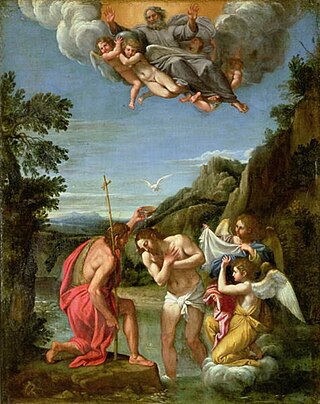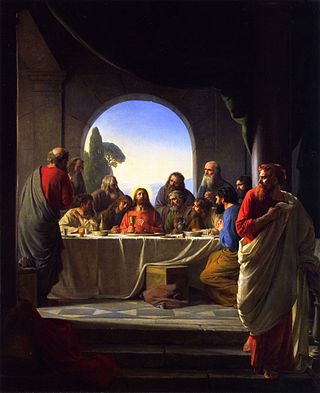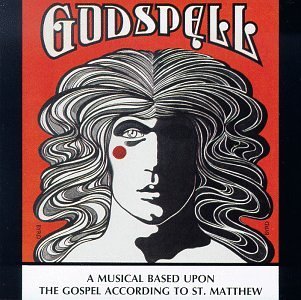Related Research Articles

Adoptionism, also called dynamic monarchianism, is an early Christian nontrinitarian theological doctrine, subsequently revived in various forms, which holds that Jesus was adopted as the Son of God at his baptism, his resurrection, or his ascension. How common adoptionist views were among early Christians is debated, but it appears to have been most popular in the first, second, and third centuries. Some scholars see adoptionism as the belief of the earliest followers of Jesus, based on the epistles of Paul and other early literature. However, adoptionist views sharply declined in prominence in the fourth and fifth centuries, as Church leaders condemned it as a heresy.

Jorge Francisco Isidoro Luis Borges Acevedo was an Argentine short-story writer, essayist, poet and translator, as well as a key figure in Spanish-language and international literature. His best-known books, Ficciones (Fictions) and El Aleph, published in the 1940s, are collections of short stories exploring themes of dreams, labyrinths, chance, infinity, archives, mirrors, fictional writers and mythology. Borges's works have contributed to philosophical literature and the fantasy genre, and have had a major influence on the magic realist movement in 20th century Latin American literature.

Judas Iscariot was a disciple and one of the original Twelve Apostles of Jesus Christ. According to all four canonical gospels, Judas betrayed Jesus to the Sanhedrin in the Garden of Gethsemane by kissing him on the cheek and addressing him as "master" to reveal his identity in the darkness to the crowd who had come to arrest him. His name is often used synonymously with betrayal or treason.

In Islam, Jesus is believed to be the penultimate prophet and messenger of God and the Messiah. He is also considered to be the prophet sent to guide the Children of Israel, being revealed in the third holy book called the Injīl.
The son of perdition is a phrase associated with a demoniacal title that appears in the New Testament in the Gospel of John 17:12 and in the Second Epistle to the Thessalonians 2:3.

Godspell is a musical composed by Stephen Schwartz with book by John-Michael Tebelak. The show is structured as a series of parables, primarily based on the Gospel of Matthew, interspersed with music mostly set to lyrics from traditional hymns, with the passion of Christ appearing briefly near the end.

Wormwood: Curious Stories from the Bible is a concept album released in 1998 by American art rock band the Residents. The album's purpose is to retell some of the more "curious" stories in the Bible, not to condemn the stories, but to give a greater understanding to them.
A fictional book is a text created specifically for a work in an imaginary narrative that is referred to, depicted, or excerpted in a story, book, film, or other fictional work, and which exists only in one or more fictional works. A fictional book may be created to add realism or depth to a larger fictional work. For example, George Orwell's novel Nineteen Eighty-Four has excerpts from a book by Emmanuel Goldstein entitled The Theory and Practice of Oligarchical Collectivism which provides background on concepts explored in the novel.
"The Approach to Al-Mu'tasim" is a fantasy short story written in 1935 by Argentinian writer Jorge Luis Borges. In his autobiographical essay, Borges wrote about "The Approach to Al-Mu'tasim", "it now seems to me to foreshadow and even to set the pattern for those tales that were somehow awaiting me, and upon which my reputation as a storyteller was to be based."

Ficciones is a collection of short stories by Argentine writer and poet Jorge Luis Borges, originally written and published in Spanish between 1941 and 1956. Thirteen stories from Ficciones were first published by New Directions in the English-language anthology Labyrinths (1962). In the same year, Grove Press published the entirety of the book in English using the same title as in the original language. "The Approach to Al-Mu'tasim" originally appeared published in A History of Eternity (1936). Ficciones became Borges's most famous book and made him known worldwide.

Labyrinths is a collection of short stories and essays by the writer Jorge Luis Borges. It was translated into English, published soon after Borges won the International Publishers' Prize with Samuel Beckett.

Mark 14 is the fourteenth chapter of the Gospel of Mark in the New Testament of the Christian Bible. It contains the plot to kill Jesus, his anointing by a woman, the Last Supper, predictions of his betrayal, and Peter the Apostle's three denials of him. It then begins the Passion of Jesus, with the garden of Gethsemane and Judas Iscariot's betrayal and Jesus' arrest, followed by Jesus' trial before the Sanhedrin and Peter's denials of Jesus.

The Gospel of Judas is a non-canonical Gnostic gospel. The content consists of conversations between Jesus and Judas Iscariot. Given that it includes late 2nd-century theology, it is widely thought to have been composed in the 2nd century by Gnostic Christians, rather than the historic Judas himself. The only copy of it known to exist is a Coptic language text that has been carbon dated to 280 AD, plus or minus 60 years. It has been suggested that the text derives from an earlier manuscript in the Greek language An English translation was first published in early 2006 by the National Geographic Society.

The gospel or good news is a theological concept in several religions. In the historical Roman imperial cult and today in non-evangelical Christianity, the gospel is a message about salvation by a divine figure, a savior, who has brought peace or other benefits to humankind. In Ancient Greek religion, the word designated a type of sacrifice or ritual dedication intended to thank the gods upon receiving good news.

Matthew 26 is the 26th chapter of the Gospel of Matthew, part of the New Testament of the Christian Bible. This chapter covers the beginning of the Passion of Jesus narrative, which continues to Matthew 28; it contains the narratives of the Jewish leaders' plot to kill Jesus, Judas Iscariot's agreement to betray Jesus to Caiphas, the Last Supper with the Twelve Apostles and institution of the Eucharist, the Agony in the Garden of Gethsemane and the subsequent vindication of Jesus' predictions, of betrayal by one of the twelve Apostles, and that he will, in the Denial of Peter, be disowned by his closest follower, Saint Peter.

John 17 is the seventeenth chapter of the Gospel of John in the New Testament of the Christian Bible. It portrays a prayer of Jesus Christ addressed to his Father, placed in context immediately before his betrayal and crucifixion, the events which the gospel often refers to as his glorification. Lutheran writer David Chytraeus entitled Jesus' words "the prayer of the high priest". Methodist theologian Joseph Benson calls this prayer "Our Lord’s Intercessory Prayer", because "it is considered as a pattern of the intercession he is now making in heaven for his people". The New King James Version divides this chapter into three sections:

The Book of Sand is a 1975 short story collection by Argentine writer Jorge Luis Borges. In the author's opinion, the collection, written in his last days — and while blind — is his best book. This opinion is not shared by most critics, many of whom prefer his other works such as those in Ficciones (1944).

Thirty pieces of silver was the price for which Judas Iscariot betrayed Jesus, according to an account in the Gospel of Matthew 26:15 in the New Testament. Before the Last Supper, Judas is said to have gone to the chief priests and agreed to hand over Jesus in exchange for 30 silver coins, and to have attempted to return the money afterwards, filled with remorse.

"The Analytical Language of John Wilkins" is a short essay by Argentine writer Jorge Luis Borges, first printed in La Nación on 8 February 1942 and subsequently published in Otras Inquisiciones (1937–1952). It is a critique of the English natural philosopher and writer John Wilkins's proposal for a universal language and of the representational capacity of language generally. In it, Borges imagines a bizarre and whimsical Chinese taxonomy later quoted by Michel Foucault, David Byrne, and others.
Predestination in Catholicism is the Catholic Church's teachings on predestination and Catholic saints' views on it. The church believes that predestination is not based on anything external to God - for example, the grace of baptism is not merited but given freely to those who receive baptism - since predestination was formulated before the foundation of the world. Predestination to eternal life, deification, divine filiation, and heaven encompasses all of mankind, for God has assumed man to his divinity by becoming man. Since man is a microcosm of creation, all of creation shares in man's predestination: it belongs to everyone, it is destined for renewal on Judgment Day, and it is being guided to its destiny by Divine Providence.
References
- ↑ Bell-Villada, Gene H. Borges and his fiction. p. 127.